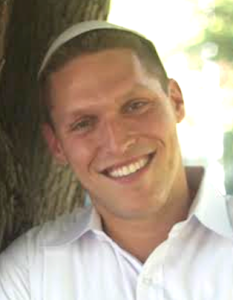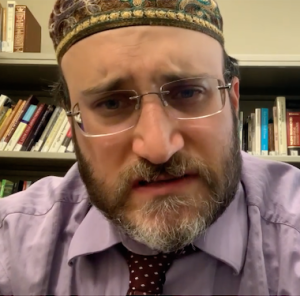Jewish and Christian Scripture could play significant roles in the anti-death penalty movement if Americans would embrace their teachings on repentance and forgiveness, a panel of faith leaders said during a Nov. 7 webinar hosted by Uri L’Tzedek, a social justice group within Orthodox Judaism.
The panel of two rabbis and three Christian ministers — all heavily engaged in anti-death penalty work — shared passages from the Bible and rabbinic law that shape their advocacy work and they believe can shift attitudes about capital punishment.

Shmuly Yanklowitz
Rabbi Shmuly Yanklowitz cited a passage from the Talmud demonstrating Jewish leaders have resisted the death penalty for centuries.
“While these rabbis of our tradition were not categorically opposed to capital punishment, certainly the rabbis saw the death penalty as so extreme a measure that they all but removed it from our justice system,” said Yanklowitz, president and founder of Uri L’Tzedek. “Regarding capital punishment, the sages had a very high bar for reliable evidence and were eager to find ways to acquit and were deeply concerned about the dignity of those that were indeed condemned.”
They also warned that capital punishment denied prisoners the opportunity to be rehabilitated. The writings are clear that “everyone is capable of teshuva, of repentance. Everyone is capable of change and transformation, and no one is ultimately to be discarded,” Yanklowitz said. “It is a sin … to place a barrier in front of another person from engaging in their transformation.”
The New Testament Gospels make that same case for mercy over revenge in their presentation of the life of Jesus, said Cece Jones-Davis, an Oklahoma-based Disciples of Christ minister and advocate for death penalty repeal.

Cece Jones-Davis
“In John 8, Jesus is interrupting the execution of the adulterous woman and he says to the crowd, ‘Ye who have no sin, cast the first stone,’” she said. “When you think of the heart and nature of God exemplified through the life of Christ through these examples and others, I cannot see Jesus saying it’s right to kill anybody.”
That story also is useful in conversations with death penalty proponents who believe executions restore justice, said Stacy Rector, executive director of Tennesseans for Alternatives to the Death Penalty.
“What’s so helpful to me in that particular story is that Jesus reframes the question. It’s not, ‘Does this woman deserve death? Does this woman deserve punishment?’ The question is, ‘Do those holding the stones deserve to kill her?’ And it becomes not about her anymore, but about us. It’s not who she is, but who we are and how we choose to live and how we choose to act.”
Appealing to Jesus and Scripture can help those who are suffering as a result of violent crime, she added. “It’s helpful particularly when you know people are so hurt and outraged and fixated on what are we going to do to this person who did this terrible thing, as opposed to stepping back and saying, who am I in light of my faith?”

Michael Zoosman
Cantor Michael Zoosman, co-founder of Jews Against the Death Penalty, cited a verse from Ecclesiastes declaring that no person has power over another’s life or death. He also recited the portion of a prayer attributed to King David in which he asked for mercy after sending Bathsheba’s husband to his death.
“The other Scripture for me is ‘You shall love your neighbor as yourself.’ What we do to others, ultimately, we are doing to ourselves as a society, as a collective humanity. And, so, we cannot continue killing ourselves” through capital punishment, said Zoosman, a hospital and prison chaplain.
The justice described in Scripture is not the vengeful kind that animates the death penalty, he said. Rather, it is restorative. “Restorative justice models cannot include the death penalty. There’s nothing restorative about the death penalty, which creates more victims and more torture.”
If any single Bible passage can bolster an interfaith movement to repeal capital punishment, it is Genesis 1:27, said Sam Heath, manager of the EJUSA Evangelical Network.
The belief that God created humanity in God’s own image and that all life is sacred “is one area where multiple faiths can intersect,” he said. “I believe life should be allowed to have its natural end and that we as humans should not do anything to interrupt that life.”
Heath also cited verses from the Psalms calling the people of God to act against injustice. “That is an active thing we are called to do. We are called not to be passive in the face of wickedness, but to actively move to arrest and to stop that, and the death penalty is a great example of this.”
Related articles:
The death penalty is dying a slow death; it’s time we pull the plug | Analysis by Stephen Reeves
Hearing from victims’ families changed the death penalty debate in Connecticut
In Ohio, Republicans are leading the effort to abolish the death penalty
Panel of faith leaders will raise awareness of death penalty injustice


